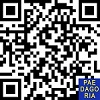PENGEMBANGAN E-MODUL GEOMETRI BERBASIS ETNOMATEMATIKA UNTUK MENINGKATKAN KEMAMPUAN PEMECAHAN MASALAH MATEMATIS SISWA SMP
Abstract
Abstrak: Tujuan penelitian ini adalah mengembangkan e-modul berbasis etnomatematika untuk meningkatkan kemampuan pemecahan masalah pada materi Geometri siswa Kelas VIII SMP Negeri 1 Kota Bima. Jenis Penelitian ini termasuk penelitian pengembangan dengan metode yang digunakan adalah metode R & D model 4D. Instrument penelitian yang digunakan diantaranya Instrument Lembar validasi bahan e-modul dan Instrument Soal Tes. Teknik analisis data yang digunakan antara lain: pertama, analisis data validasi. Kedua, data uji coba yang terdiri dari: data kemampuan guru mengelola pembelajaran, data aktivitas siswa, data respon siswa, dan data tes pemecahan masalah. Hasil penelitian menunjukkan bahwa rata-rata presentase keterlaksanaan pembelajaran sebesar 83,41% dengan kriteria baik. Hasil angket respon siswa yaitu terdapat 82,5% siswa merasa senang terhadap e-modul berbasis etnomatematika, 77,5% siswa menyatakan komponen e-modul bersifat baru, 85% siswa menyatakan berminat untuk mengikuti pembelajaran selanjutnya dengan menggunakan e-modul berbasis etnomatematika, 80% siswa menyatakan bahasa yang digunakan jelas, dan 82,5% menyatakan tertarik dengan tampilan e-modul yang dikembangkan. Hasil rata-rata dari aktivitas siswa selama mengikuti pembelajaran sebesar 81,16% dan berada dalam kategori baik. Sedangkan rata-rata hasil nilai pre-tes individu siswa sebesar 36,51 dan hasil nilai post-tes sebesar 86,42. Adapun nilai N-Gain diperoleh sebesar 0,78 dan berkategori tinggi.
Abstract: The aim of this research is to develop an ethnomathematics-based e-module to improve problem solving abilities in Geometry material for Class VIII students at SMP Negeri 1 Bima City. This type of research includes development research with the method used is the 4D model R & D method. The research instruments used include the e-module material validation sheet instrument and the test question instrument. The data analysis techniques used include: first, validation data analysis. Second, trial data consisting of: data on the teacher's ability to manage learning, student activity data, student response data, and problem solving test data. The research results showed that the average percentage of learning implementation was 83.41% with good criteria. The results of the student response questionnaire were that 82.5% of students felt happy with the ethnomathematics-based e-module, 77.5% of students stated that the e-module components were new, 85% of students stated that they were interested in taking part in further learning using ethnomathematics-based e-modules, 80% of students stated that the language used was clear, and 82.5% stated that they were interested in the appearance of the e-module being developed. The average results of student activities during learning were 81.16% and were in the good category. Meanwhile, the average individual student pre-test score was 36.51 and the post-test score was 86.42. The N-Gain value obtained is 0.78 and is in the high category.
Keywords
Full Text:
PDFReferences
Babe, A., Sudane, I. W., & Lajiba, S. B. S. (2023). Pengembangan E-Modul Berbasis Etnomatematika Untuk Meningkatkan Kemampuan Komunikasi Matematis Siswa. NUMERIC:Jurnal Penelitrian Dan Inovasi Pendidikan Matematika, 1(2), 90–99. https://doi.org/10.53090/numeric.vxix.xxx
Churiyah, M., Sholikhan, S., Filianti, F., & Sakdiyyah, D. A. (2020). Indonesia Education Readiness Conducting Distance Learning in Covid-19 Pandemic Situation. International Journal of Multicultural and Multireligious Understanding, 7(6), 491. https://doi.org/10.18415/ijmmu.v7i6.1833
Crisvin., Asbari, M., & Chiam, J. V. (2023). Innovate to Liberate: Akselerasi Kreativitas Siswa dalam Pendidikan. Journal of Information Systems and Management (JISMA), 2(5), 8–12.
Fatmawati, I. (2021). The Role of Teachers in Curriculum Development and Learning. Revorma, Jurnal Pendidikan Dan Pemikiran, 1(1), 20–37. http://ejournal-revorma.sch.id
Fazriansyah, M. F. (2023). Efektivitas Model Discovery Learning Terhadap Kemampuan Komunikasi Matematik Peserta Didik. Jurnal Ilmiah Matematika Realistik (JI-MR, 4(2), 275–283.
Hartini, T. S., & Warmi, A. (2020). Analisis Motivasi Belajar Peserta Didik dalam Pembelajaran Matematika di SMP. Prosiding Seminar Nasional Matematika Dan Pendidikan Matematika Sesiomadika, 2(1c), 640–646. https://journal.unsika.ac.id/index.php/sesiomadika/article/view/2665
Hasanah, N., Inganah, S., Prasetyo, B., & Mariyanto, A. (2023). Learning in the 21st Century Education Era: Problems of Mathematics Teachers in the Use of Information and Communication Technology-Based Media. JEMS (Journal of Mathematics and Science Education), 11(1), 275–285.
Lawhon, D. (1976). Instructional development for training teachers of exceptional children: A sourcebook. Journal of School Psychology, 14(1), 75. https://doi.org/10.1016/0022-4405(76)90066-2
Mantau, B. A. K., & Talango, S. R. (2023). Pengintegrasian Keterampilan Abad 21 Dalam Proses Pembelajaran (Literature Review). Irfani, 19(1), 86–107. https://doi.org/10.30603/ir.v19i1.3897
Marcel De Araujo, L., Priadana, S., Paramarta, V., & Sunarsi, D. (2021). Digital leadership in business organisations: An overview. International Journal of Educational Administration, 2(1), 2774–6143.
Ngirishi, H., & Bansilal, S. (2019). An exploration of high school learners’ understanding of geometric concepts. Problems of Education in the 21st Century, 77(1), 82–96. https://doi.org/10.33225/PEC/19.77.82
Prahmana, R. C. I., & D’Ambrosio, U. (2020). Learning geometry and values from patterns: Ethnomathematics on the batik patterns of yogyakarta, indonesia. Journal on Mathematics Education, 11(3), 439–456. https://doi.org/10.22342/jme.11.3.12949.439-456
Said, S. (2023). Peran Tekonologi Sebagai Media Pembelajaran di Era Abad 21. Jurnal PenKoMi : Kajian Pendidikan & Ekonomi., 6(2), 194–202.
Sowanto, & Mulyadin, E. (2019). Developing of teaching materials for junior high school students based on ethnomathematics on traditional woven cloth (Tembe Nggoli) of Mbojo tribe. Journal of Physics: Conference Series, 1280(4). https://doi.org/10.1088/1742-6596/1280/4/042044
Sutarto, I. D. H., Sukarma, I. K., & Untu, Z. (2022). Ethnomathematics-based E-Module Development for Improving Conjecturing Ability in Object Configuration Materials. Journal of Positive Psychology …, 6(1), 2813–2823. https://www.journalppw.com/index.php/jppw/article/view/4505
DOI: https://doi.org/10.31764/paedagoria.v15i4.25842
Refbacks
- There are currently no refbacks.
Copyright (c) 2024 Andang Andang

This work is licensed under a Creative Commons Attribution-ShareAlike 4.0 International License.
Paedagoria : Jurnal Kajian, Penelitian dan Pengembangan Kependidikan
Fakultas Keguruan & Ilmu Pendidikan | Universitas Muhammadiyah Mataram.
_______________________________________________
 | Paedagoria : Jurnal Kajian, Penelitian dan Pengembangan Kependidikan |
______________________________________________
CURRENT INDEXING:
EDITORIAL OFFICE:


















